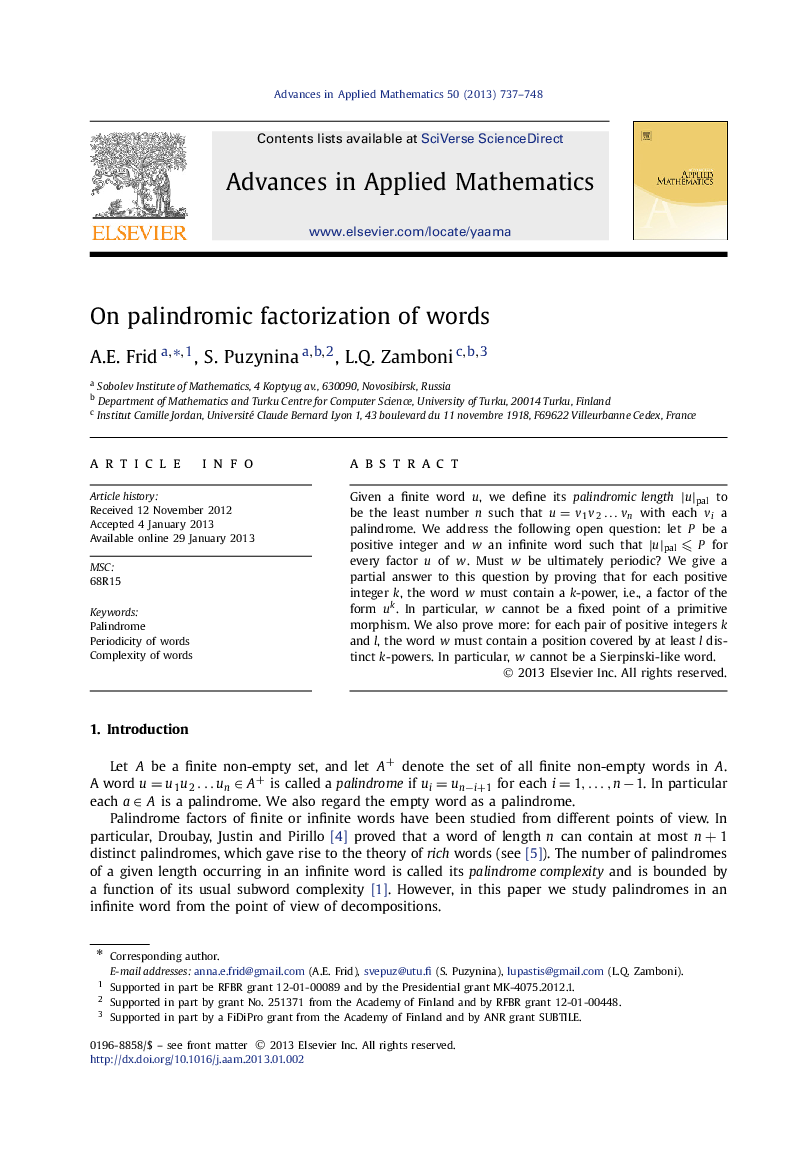| Article ID | Journal | Published Year | Pages | File Type |
|---|---|---|---|---|
| 6419680 | Advances in Applied Mathematics | 2013 | 12 Pages |
Abstract
Given a finite word u, we define its palindromic length |u|pal to be the least number n such that u=v1v2â¦vn with each vi a palindrome. We address the following open question: let P be a positive integer and w an infinite word such that |u|pal⩽P for every factor u of w. Must w be ultimately periodic? We give a partial answer to this question by proving that for each positive integer k, the word w must contain a k-power, i.e., a factor of the form uk. In particular, w cannot be a fixed point of a primitive morphism. We also prove more: for each pair of positive integers k and l, the word w must contain a position covered by at least l distinct k-powers. In particular, w cannot be a Sierpinski-like word.
Keywords
Related Topics
Physical Sciences and Engineering
Mathematics
Applied Mathematics
Authors
A.E. Frid, S. Puzynina, L.Q. Zamboni,
